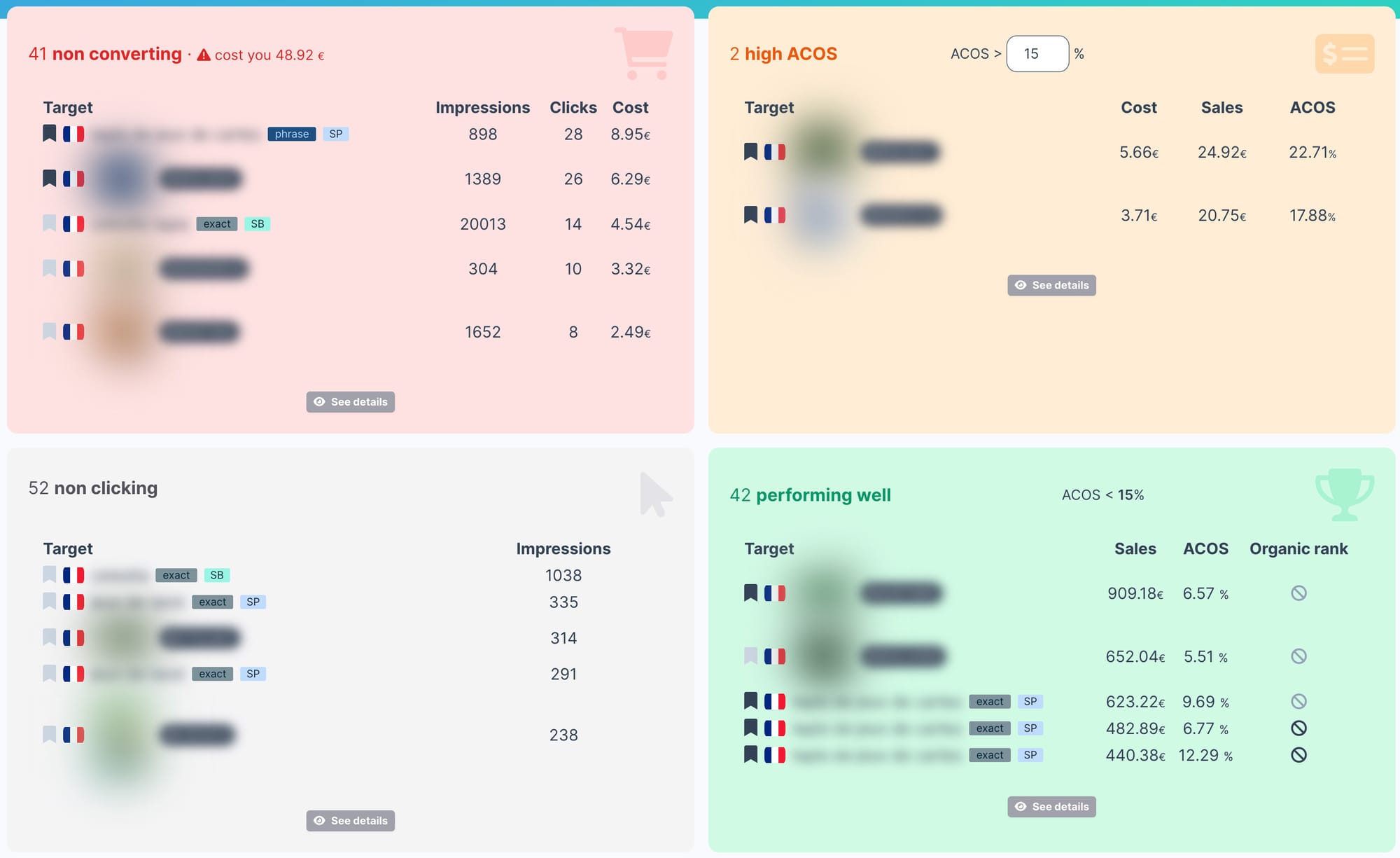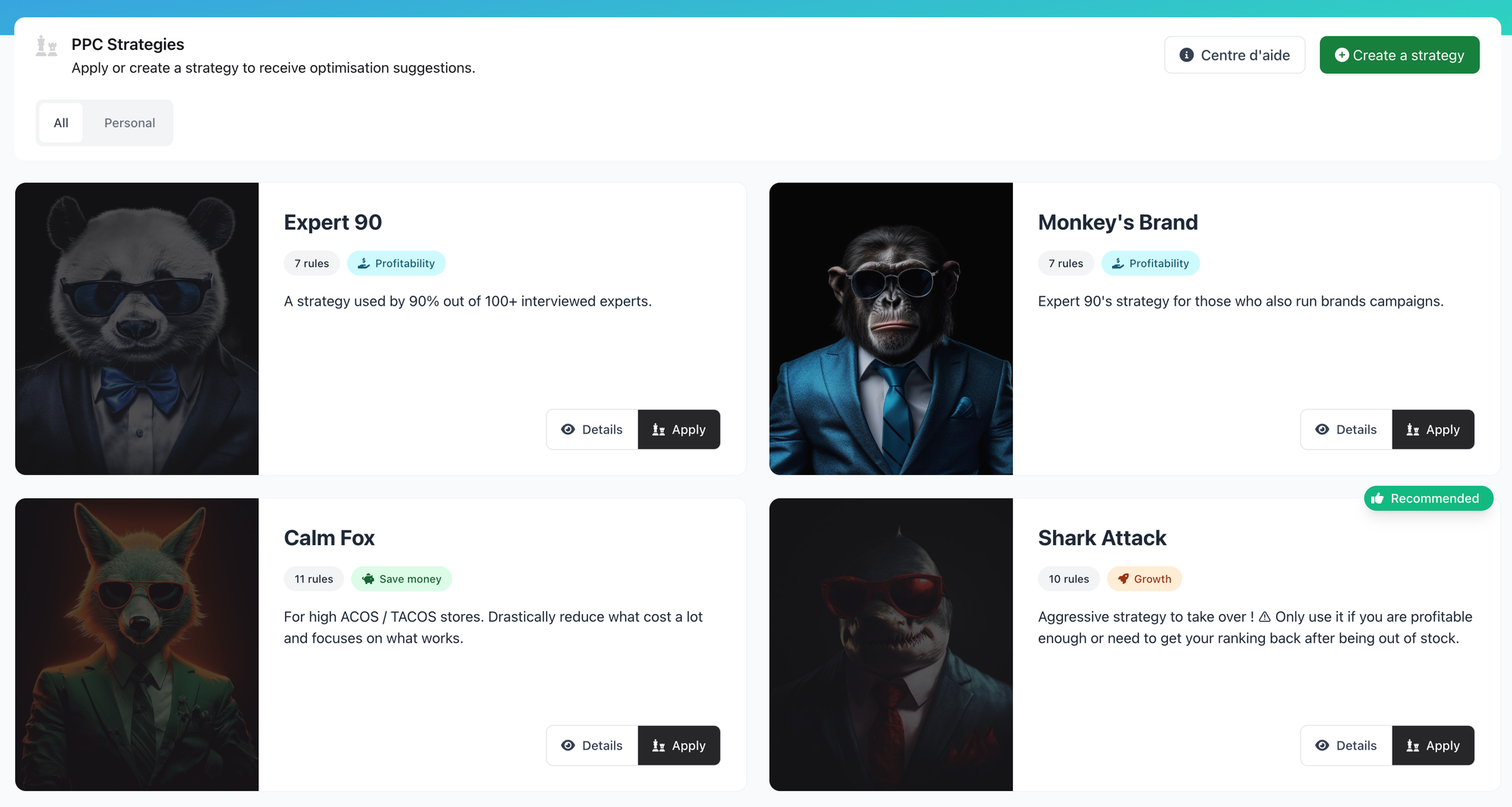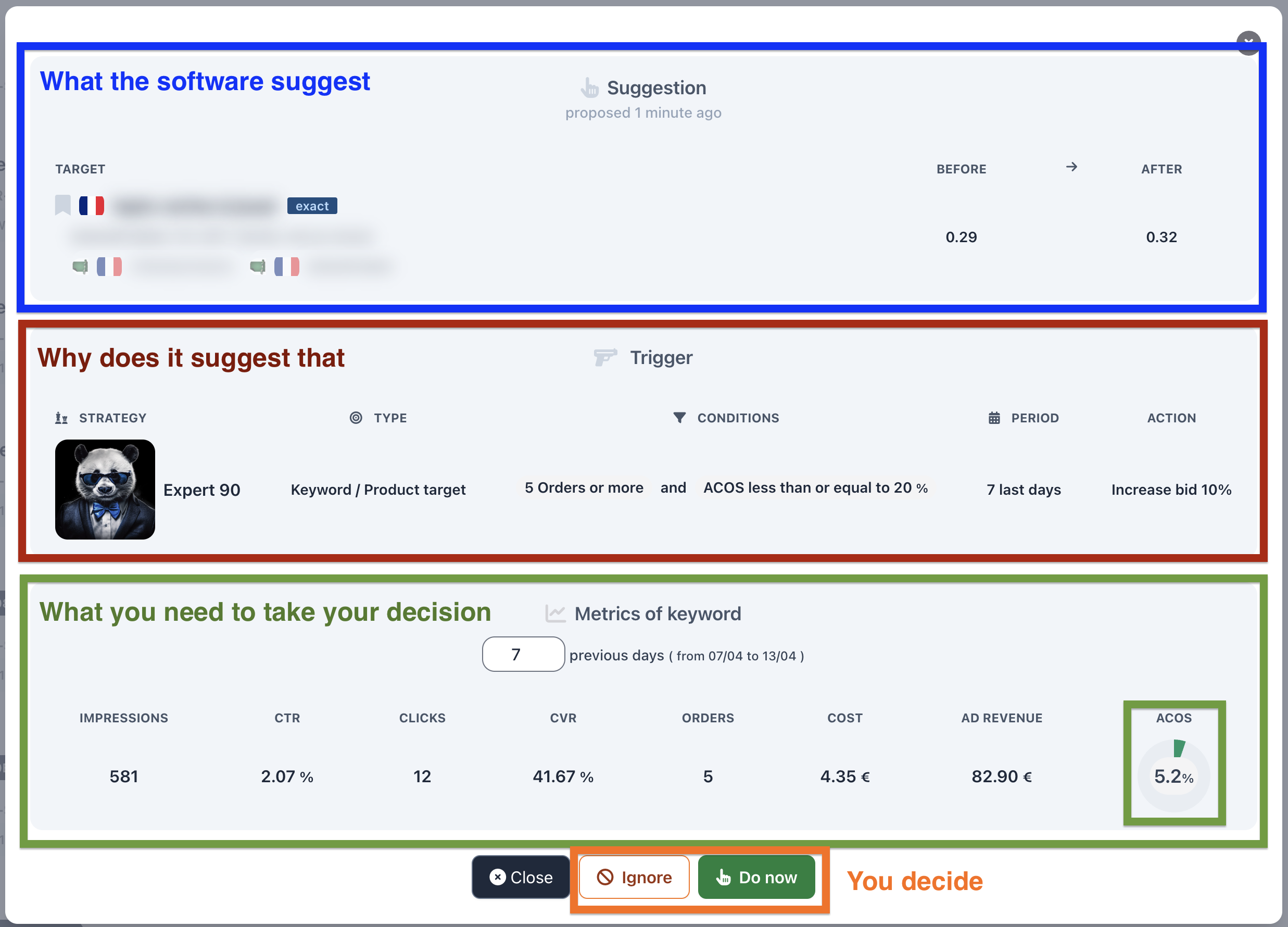☠️ AI Amazon PPC Automation tools can kill your business.

If you are new here, welcome!
My name is Nassuf, software engineer, former Amazon seller, and founder of PPCAssist.
I started programming at 14 years old, today I'm 34. 👴🏿
20 years of passion geeking.
I've seen the rise of solutions like Shopify and Wix that have allowed anyone to launch their website and e-commerce without technical knowledge.
In 20 years, none of these "revolutions" has blown me away as much as AI is doing right now!
There is everything we see as users (ChatGPT, Gemini, Midjourney etc), but there are especially many possibilities for developers thanks to the opening of these solutions.
OpenAI, the company behind ChatGPT, has enabled many small businesses to launch AI solutions without needing a full team of data scientists or extensive funding.
For example: redaction.io, a tool that generates fully SEO-optimized articles in just a few clicks, was launched by a small French SEO agency with the help of OpenAI.
Knowing this, it becomes very accessible and tempting to create an AI-based PPC management software with the tagline: "The AI that fully manages your PPCs, increases your profitability and makes you richer 🤑" (yeah, I know... I'm not the best at marketing taglines, but you get the idea 😅).
But that would be wrong!
There are a lot of AI-based PPC automation software. m19, aiHello, sellozo and way more.
To be honest, I myself thought AI was the best solution for growing profitable PPCs when I started PPCAssist, but I quickly realized it wasn't!
AI can be great as a new way to communicate and get information. It can act as a great assistant that helps you understand your metrics and gives you advice. But when it comes to making impact decisions that impacts your ads spend, it can be really dangerous!
One of the first features we built was the "targets breakdown".
A view to quickly identify targets that cost money without converting, the ones that cost too much, don't get any clicks, and the ones that perform well.

At that time I always had a call with every new user and I soon had 3 similar cases:
More than 50% of ad spend is made on non-converting keywords!
Each time it was tens or hundreds of targets that spent a few € each.
Each time the same explanation from the seller: "I led the AI in charge..."
That is how I discovered the first big problem with AI for Amazon PPC:
Big Problem #1: The lake of control!
Yes, Amazon ads are complicated, take a lot of time, give headaches, and are very stressful. But this is about YOUR money.
I guess you wouldn't give full control to an AI that manages your money in risky investments without any oversight or validation from you. It's the same for PPCs, you need to find the right balance between saving time and maintaining control.
Just to mention these three cases (there were others later), if there had been a prior validation system, these people would surely not have approved hundreds of new targetings, many of which had nothing to do with their product.
At PPCAssist we take control very seriously.
The software never does any modification on your ads without your confirmation!
The concept is simple. PPCAssist's mission is to assist you grow profitable ads.
- You choose among pre-build strategies or create your own one
- You regularly get ad optimization suggestions based on your strategy
- You just have to check and validate these suggestions
Once you feel comfortable you might want to automate some of these suggestions. Let's say you often get suggestions to lower by 80% bids on targets that did not convert at all in the past 30 days and you don't want to confirm these suggestions each time.
Well, you will just have to set this rule as automated.
This way, any time it happens, you will be notified 12 hours before the action is done automatically so you can automate while still keeping control and being able to ignore some of these suggestions!
Big Problem #2 You don't know why?

Essentially, Amazon advertising is all about targeting and bidding.
Which keywords and competing products do I target? Why?
How much am I willing to pay per click for each of these targets? Why?
The problem with AI PPC software is that you don’t understand why it makes its decisions!
Even if there was user validation, you would need to be able to explain these choices: Why should we target this keyword? Why should we increase this bid and decrease that one?
These PPC AI software are not meant to explain that.
Why? 🙃
To know that, you need to understand how these AI works.
Today's AI is not "intelligence", they are just super-powerful autocompletion.
ChatGPT is a chatbot that uses a generative pre-trained AI. Actually, GPT stands for "Generative Pre-trained".
The sole purpose of GPT is to find the most likely next word of a sequence of words, like auto-completion.
Let's do a small test:
Take your phone, open your favorite messaging app, type "I" and keep pressing the suggested word in the middle.
There you have it: The most probable sentence starting with "I", based on everything you've written on your phone!
GPT works the same way, except it's trained on millions of documents, and is of course more complex.
The goal is not to explain tolet's you why, nor to tell the truth, but the guess the word that is most likely to follow.
That's for GPT, but these Amazon PPC software seem to be based on their own AI.
m19 for example, founded by former Criteo Data engineers, undoubtedly has its own AI model.
In this case, it’s not a generative model like GPT, but the concept remains the same:
- Train its model ("intelligence") on data
- Try to predict probable insights from previous data.
Practically, let's say you've been targeting the keyword "yoga mat" for several months, having changed bids several times. At some point, the AI will predict that the right bid would be... €1.10!
Why? Because... it's probable! 🔮
No logic, no clear understandable rules that can explain that and help you understand more your market, just a prediction, that will impact your money.
Despite GPT being one of the best generative AIs in the world, its answers are sometimes incorrect, simply because its goal isn't to be accuratefits but to be probable.
With that in mind, try to figure out how a software that doesn't have the training data volume of a company like OpenAI can offer you the right targets and the right bid... And you'll understand why I'm seeing more and more sellers coming from these software programs, signing up on PPCAssist and always asking first:
"How can I be sure that the tool doesn’t mess up my campaigns and overspend?"
You might be in that situation. If that is the case, sorry about that, but happy to tell you we might have a solution that fits your needs.
How to grow your profits through PPCs without the headache then?
1# It all starts with your offer.
You need to provide a good product, with a good listing at a competitive price. Non-profitable Amazon ads often come from a bad offer.
You surely had invested a lot of time and money in your product and listing. That makes the decision to stop a product very difficult.
I totally get it.
But believe me, sometimes you have to make the hard decision without considering what you've already invested.
I have myself made the mistake of investing in an offer that wasn't competitive. I finally lost 10+k€ and more importantly 2 years on that!
PPC is just an accelerator: accelerate a bad offer and you'll crash.
2# Know your basics.
It is crucial to understand the basics of Amazon PPC!
Even if your short-term goal is to hire an agency: you must know how it works.
No big talks, here are 3 videos from great guys to go from beginner to a good understanding of Amazon Ads.
Steven Pope, founder of "My Amazon Guy" agency, also talks about how to know if your listing is ready for Amazon ads:
https://www.youtube.com/watch?v=gudIjpDMLto
Mina Elias, founder of Trivium Group agency, talks very practical, with concrete cases, I personally watch a lot of his videos
https://www.youtube.com/watch?v=J9JkY9aMLJs
Dan Rodgers, who is unfortunately less active the past month but is for me one of the best when it comes to explaining complex things in simple words.
https://www.youtube.com/watch?v=zPrXCUFOZoU
3# Start by doing it yourself
Every week we get new users who saw the theory, never start a single campaign on the ads console but dig straight into using a tool.
The problem with that is you won't be aware of the reality of Amazon advertising. You won't know what works but takes time, what is valuable, and what can be done by a tool.
If you've not started yet, I strongly advise you to start managing your ads manually first. You will have a better understanding of your market, and identify the time-consuming tasks and analyses that you need to regularly do.
4# Semi-automate these tasks
Now that you have a good offer and understanding of your ads, you can use a tool to accelerate. Let all the time-consuming analysis to the tool and keep control!
I recommend using software based on logical and understandable rules, like AdBrew, the non-AI part of Helium10 AdTomic, or PPCAssist.
We have built PPCAssist to be as simple as possible, yet leave full control and be flexible enough so sellers can create their own strategies.
First, you choose a pre-build strategy or create your own.
Our pre-build strategies are made to adapt to each store's specific metrics. PPCAssist will automatically recommend a strategy based on your current ad state

You will then get suggestions to validate.
When it comes to suggestions, you need to know: What is the current state, what is suggested, why, and the context with all metrics to make your decision.
That is exactly what PPCAssist provides you. You can check each suggestion details before making your decision:

This way you can save time, and increase your ads profitability, yet avoid the risk of an AI tool making its own decision!
And you can fully try it for free, for up to 28 days, without any credit card.
